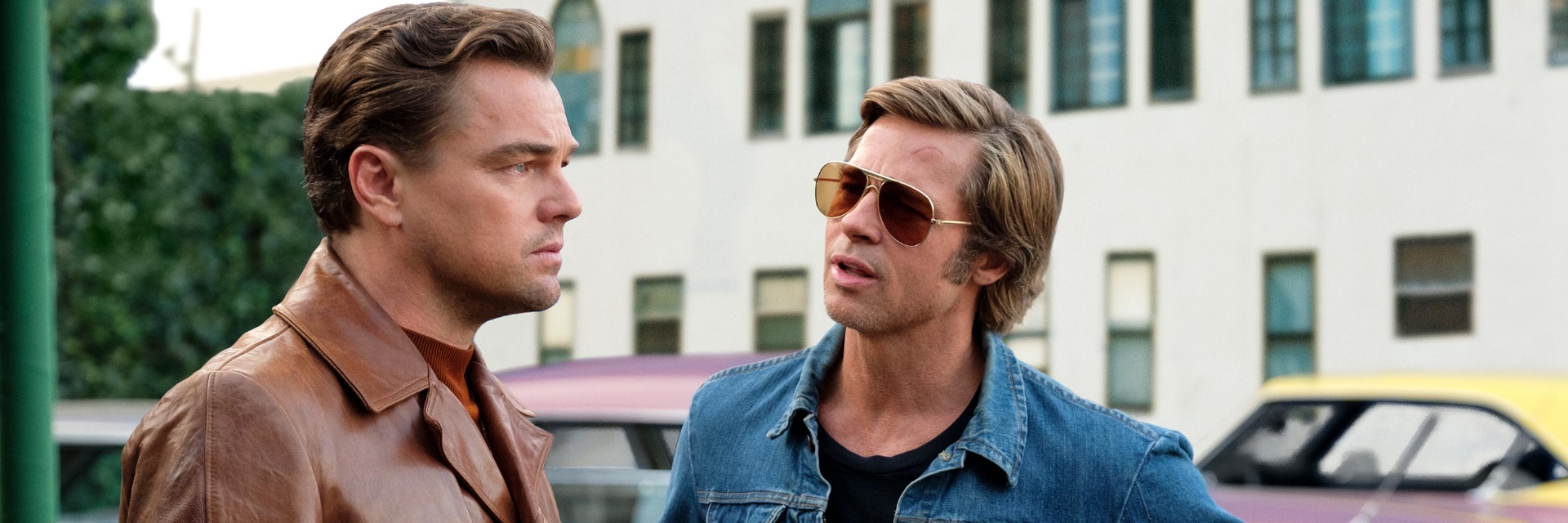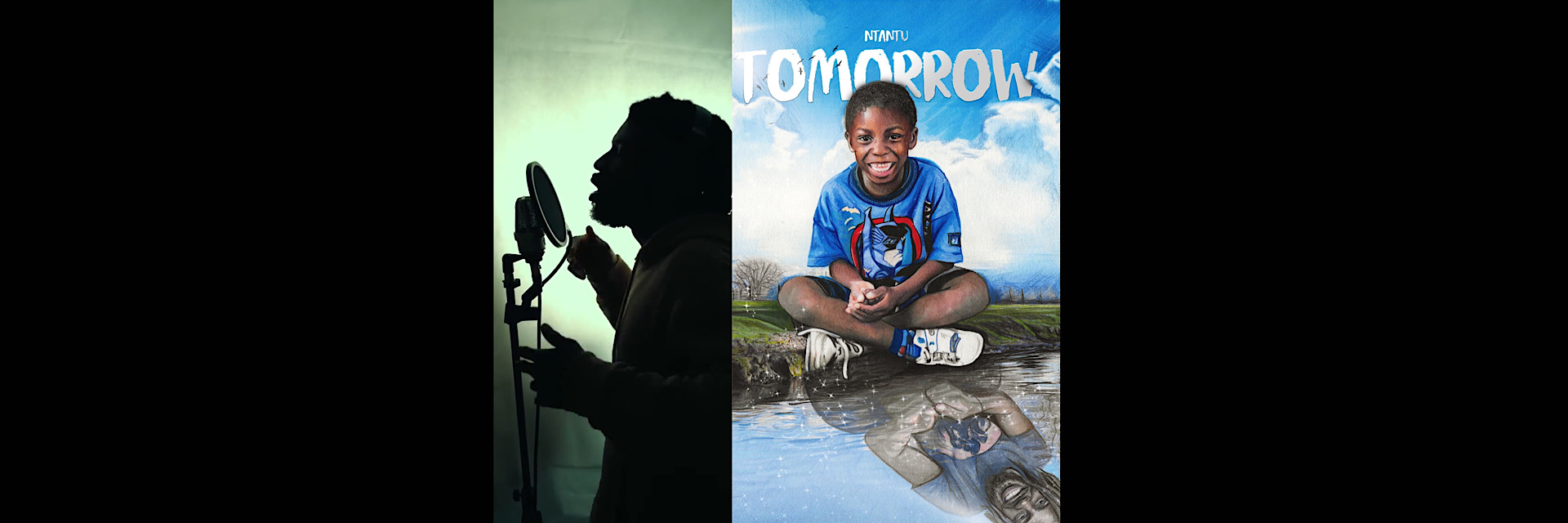While Once Upon a Time in Hollywood is very clearly a film by Quentin Tarantino it is a noticeable departure from the kind of films he’s been making for the last decade. Though the influences are clearly present its not a genre film and is much less plot driven than any of his other works. Apart from a spatter of tense moments and the last fifteen minutes there’s very little urgency on display here, with the pacing being quite calm and lackadaisical as the film follows a few days in the lives of a few denizens of the Hollywood hills. It should be noted that, for a good portion of the film at least, the Hollywood takes place in isn’t the real Hollywood as it ever existed, more so an abstraction of a memory of the place in which the practical realities play second fiddle to the idea of Hollywood. These are the Sharon Tate sections, which are disarming in how different they are from the portions focusing on leads Rick Dalton and Cliff Booth. While those two are very clearly characters in a film Tate is filmed more akin to how the news would showcase celebrity life in an almost voyeuristic manner where the camera feels entirely separated from its surroundings. Rarely is she involved in any actual dialogues and at no point does she directly interact with the plot of the film, she’s just this factual anchor that ties everything around her together while she remains entirely separate from it all.
It very well may have been a disparaging portrayal if she wasn’t given such a loving treatment. Tarantino clearly loves the lat ’60s and it shows in the wondrous way that he shoots the streets at night, with the shining chrome bumpers of cars lighting up in the sun as they speed past neon nightspot signs and a bevy of cinema marquees emblazoned with titles in big block lettering. Its always shot from a low angle so the audience is looking up to see the signage in a reverential posture to give it as much grandeur as possible. Tate’s treatment is much the same in terms of effect and the way that contrasts with the presentation of Dalton and Booth along with her looming historical demise gives her character a great deal weight and importance. Converse to this are the harsh realities that confront Rick Dalton and Cliff Booth. Rather than viewing the ageing Dalton as a celebrity like Tate the film showcases him as a working actor constantly concerned with both the artistic and economic facets of his profession. For him a film role isn’t just something to bask in like it is for Tate, its an expression of his talents as an actor and a constant audition to enable him to continue working.
DiCaprio plays Dalton with an overt expressionism that always has him wearing his thoughts on his sleeve, The slightest intonation that his career could be winding down in light of his age and propensity for being cast as one episode villains on TV shows sends him careening into these intense bursts of anger and sadness, but he always manages to channel them into something productive. At a glance Dalton’s life, with his solid acting career, nice car, house in the hills, and professional hanger on Cliff Booth, would make him an inherently absurd character who’s worries seem farcical to an audience, but the film avoids this by building both Dalton and Booth up as having a compelling drive that makes the audience want to see them succeed. Though he’s clearly aiding Dalton out of a sense of self interest considering his own waning career prospects, Brad Pitt’s Booth is affable enough to demonstrate an affectionate camaraderie with Dalton. Watching the two of them constantly trying to help each other out feels very genuine and gives each a level of reasonableness that makes them both identifiable and memorable.
It’s their relationship that slowly but surely propels the film forward and fleshes out it’s tight scope. The events of the narrative take place over a trio of days in 1969 and while there are a fair few flashbacks the film does a good job of compacting all the relevant events of character and world building into this small time frame. Its very much a slice of life look at the period and the somewhat ugly truths of film-making without ever going so far as to make it demure or ordinary, with the perspective being very clearly a film-makers one. One aspect of the film that does match up with Tarantino’s past few efforts is the historical revisionism and vengeful path that the film takes. Instead of a practical retelling of the way that the Manson murders destroyed the peace and love mood of the ’60s there’s a sharp inversion wherein the ’60s destroys the Manson family. There’s a huge implication to the rewriting of these events but as aforementioned the film has that ethereal haze to it and the climax is constructed with such sheer force that the audience isn’t given time nor reason to question it, and the result is certainly startling but altogether satisfying.
That being said there are certainly those who will take issue with the films depiction of certain players, and they wouldn’t be entirely wrong in doing so. Bruce Lee’s brief appearance is one of the most obvious and despite the fact that he’s not depicted as being weak or particularly insincere the way the film belittles the martial mystique he purported and plays the scene for comedic purposes very well may rub some the wrong way. Conversely the film’s depiction of the Mansonite’s themselves is played rather straight and without jest, especially in regards to the sexuality of the mostly teenage acolytes which is given a superliminal examination. There could have been more done to illustrate the divide between the film’s hippies and Hollywood people as the two forces are often combative despite their ideological similarities any exploration in this area would’ve only served to better contextualise Manson and his flock. I suppose it’s symptomatic of the personal lense that Tarantino employs in order to give an immediacy and a personable nature to the often exaggerated sides of his films, but with the degree that this film takes place in a defined historical setting its biggest problems is not choosing whether it wants to always play by those rules or not.
Narrative aspects aside the technical form of the film is absolutely enthralling with it’s wide shots and smooth movements that see the camera moving in and out of conversations to show off every available angle. There’s a great many wide shots that are employed to place the actors amongst the setting rather than have it be in the background and the negative space is often used to sneakily highlight the intricacies of the environment. Its used to great effect when comparing the bare and flat look of the western interiors that Dalton films on to the cluttered and tight rooms that the rest of the film takes place to drive home the difference in the tangibility of each location. Save for a few notable inclusions the soundtrack isn’t that memorable, though it almost seems like that was the point. It’s all the kind of music you’d hear on the radio once and bop your head along to without ever giving it a second thought, and while that makes sense in terms of the period its not terrible interesting from a filmic standpoint.
Once Upon a Time in Hollywood is perhaps the most sincere and definitely the most intentionally comedic entry in the Tarantino canon. Rather than play into the idiosyncrasies of exploitation movies and try to twist them into something more purposefully or distort the narrative form and dissect the building blocks of a story what he does here is present a piece that is entirely self driven. What you see on the screen is exactly what Tarantino wants to create, a rose-tinted vision of a Hollywood that was full of gaiety and driven by the joy of cinema and film-making and blissfully unaware of the corporeal problems of its surroundings. The film is a stark rejection of history in place of something more wondrous and in truth more Hollywood and its so earnest and honest in attempting to do so that, as long as you have some awareness of the effects of the events the film inverts, its quite difficult not get caught up in just how immensely enjoyable it all is.






